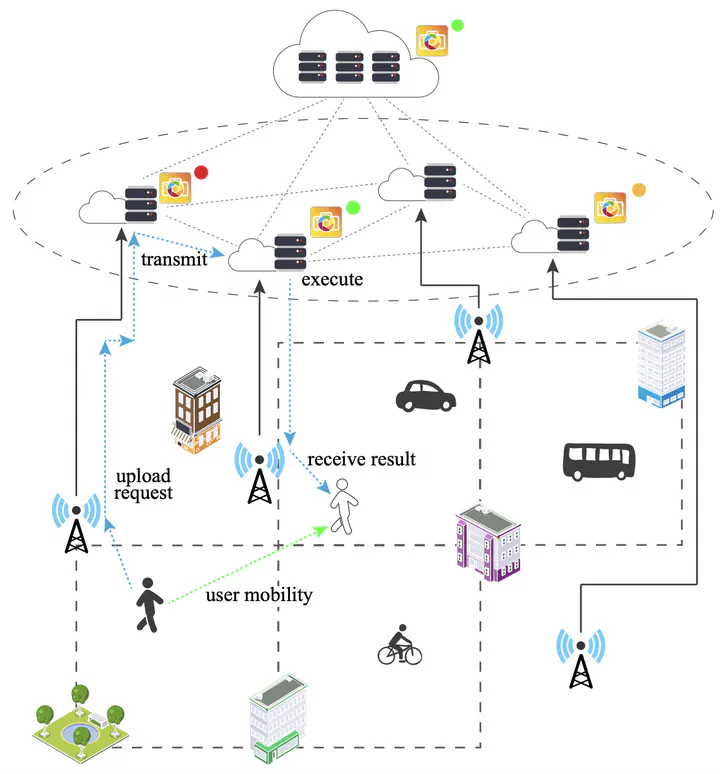Towards the optimality of service instance selection in mobile edge computing
Feb 1, 2021·
 ,
,
,
,
·
0 min read
,
,
,
,
·
0 min read
Guobing Zou
Zhen Qin
Shuiguang Deng
Kuan-Ching Li
Yanglan Gan
Bofeng Zhang

Abstract
Mobile edge computing (MEC) has been proposed to significantly reduce the response time of service invocations for end users. In MEC environment, a service provider can create multiple instances from a service and deploy them to different hired edge servers, where the deployed instances can be selected and invoked to decrease the network latency by nearby users. However, service instance selection in MEC is a challenging research problem from threefold aspects. First, the limitations of an edge server in terms of computation capacity and coverage range result in serving for only a certain number of users at the same time. Second, due to variable geographical locations from user mobility paths in MEC, the mobility of edge users is highly related to data transmission rate and affects the delay of service invocations. Furthermore, when many users in an edge server covered region request the same service instance at the same time, they interfere with each other and may reduce the experience of service invocations if there is no effective strategy to distribute these requests to appropriate instances deployed on different edge servers. To improve the user experience on service invocations with a lower response time, we take the above three factors into account and model the service instance selection problem (SISP) in MEC as an optimization problem, and propose a novel genetic algorithm-based approach with a response time-aware mutation operation with normalization for service instance selection called GASISMEC to find approximately optimal solution. Extensive experiments are conducted on two widely-used real-world datasets. The results demonstrate that our approach significantly outperforms the six baseline competing approaches.
Type
Publication
Knowledge-Based Systems